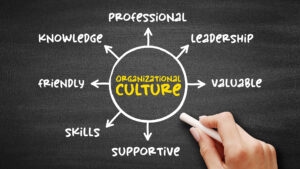Every leader understands the importance of effective decision-making in driving organisational success. These decisions impact the organization, shape its strategic direction, culture, and performance.
Executive coaching is a powerful tool to improve your decision-making skills. These programs offer confidence, insights, and techniques that encourage effective and informed decision-making.
What is Executive Coaching?
An effective executive coaching program offers a personalized development process to help participants achieve their goals, develop new skills, and enhance performance. The program includes objectives setting, identifying improvement areas, and developing actionable plans and is customized to the participants’ personal challenges and needs.
How Coaching Improves Decision-Making
Coaching is more than guidance under challenges. It activates your prefrontal cortex, which is the brain’s decision-making powerhouse. Coaching creates a supportive space to quieten distractions and engage the prefrontal cortex to enhance decision-making under pressure.
1. Goal-Setting to Drive Action and Focus
An executive coach helps participants to set actionable and clear goals. They are then encouraged to focus their attention and energies towards achieving these goals. By breaking bigger goals into smaller objectives, individuals progress towards these, which motivates them towards more successful decisions.
2. Reflective Questioning to Enhance Thinking
By asking open and thought-provoking questions, leaders can critically examine various options to generate innovative solutions. The process strengthens the neural pathways of problem-solving and improves important thinking skills, which are essential to success as a leader.
3. Psychological Safety for Clear Thinking
An important component of a leadership training program is offering psychological safety. The ability to explore new ideas without the fear of judgment encourages innovative thinking to find solutions in challenging situations.
4. Developing New Decision-Making Skills
- Self-Awareness
An experienced coach encourages you to identify your biases, strengths, values, and weaknesses. This allows you to recognize how your emotions and traits influence your choices. Greater self-awareness encourages you to arrive at objective and rational decisions.
- Emotional Intelligence
Leaders who are emotionally intelligent manage their emotions in a better way. Additionally, they understand other people’s emotions, which helps them to navigate interpersonal relationships. Coaching helps leaders acquire emotional intelligence, enabling them to keep calm in stressful situations, empathizing with others, and make decisions taking into account the emotional impact on all stakeholders.
- Confidence
This is an important skill needed to make rational decisions under pressure. When you lack confidence, you may overthink, hesitate, or overanalyze the situation. In extreme circumstances, you may avoid making the decisions. A leadership coaching program will help you develop confidence by offering a supportive space that allows you to explore your doubts and fears. The coaches offer constructive feedback that brings a stronger belief in your abilities and skills, which enables you to make the right decisions to lead your business through stressful situations.
- Communication Skills
To make the right decisions, you will need to work with different stakeholders. A coaching program helps to enhance your communication skills by asking the right questions, practising active listening, and conveying your views clearly and persuasively. Enhanced communication skills will allow you to gather crucial information, develop consensus, and ensure decisions are supported and understood by all stakeholders.
- Resilience
This ability allows leaders to bounce back from any setbacks and stay focused on the long-term objectives. Leadership coaching fosters resilience, enabling you to develop effective coping mechanisms, maintain a positive outlook, and remain committed to your vision despite challenges. When leaders are resilient, they are equipped to make tough decisions, adapt to changing circumstances, and lead the business across uncertainty and stressful situations.
- Ethics
Ethical decision-making is crucial for maintaining integrity and trust in leadership. An effective coaching program will emphasize the importance of aligning decision-making with organizational ethics and values. Coaches will encourage participants to think about the ethical implications of their decisions to ensure these are responsible and sustainable.
With executive coaching, organizations ensure their people unlock their complete potential. If you are ready to enhance your decision-making skills under pressure with scientifically backed principles, check out our executive leadership programs today.





